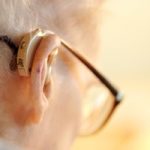 With warmer weather comes more outdoor activities. We are no longer cooped up inside our homes. And with grand events going on outdoors, comes louder noises. Fireworks, concerts, construction sites. Although you may not think these three events have anything in common, they do: They can all contribute to your hearing loss. These events are some of the reasons summertime poses a threat to your hearing.
With warmer weather comes more outdoor activities. We are no longer cooped up inside our homes. And with grand events going on outdoors, comes louder noises. Fireworks, concerts, construction sites. Although you may not think these three events have anything in common, they do: They can all contribute to your hearing loss. These events are some of the reasons summertime poses a threat to your hearing.
Besides noise, the risk of developing “swimmer’s ear,” when water enters the ear canal, increases. So if you want to enjoy summer and preserve your hearing stick to some ear-friendly tips.
Hearing loss by the numbers
Advertisement
 Before we provide you with effective means to protect your ears this summer, let’s examine hearing loss. The National Institute on Deafness and Other Communication Disorders (NIDCD) reports that about 15 percent of American adults suffer some form of hearing impairment. The rate among seniors is 25 percent for those between 65 to 74, and jumps to 50 percent for seniors 75 and older.
Before we provide you with effective means to protect your ears this summer, let’s examine hearing loss. The National Institute on Deafness and Other Communication Disorders (NIDCD) reports that about 15 percent of American adults suffer some form of hearing impairment. The rate among seniors is 25 percent for those between 65 to 74, and jumps to 50 percent for seniors 75 and older.
Men are generally more prone to hearing loss because they tend to work in environments that produce high levels of noise – construction for example.
Sadly, our hearing is not something we can get back. Once it’s gone, it’s gone for good. Hearing aids may have to be used, but the NIDCD reports that 30 percent of seniors 70 years and older don’t use them at all. Whether this is due to cost or issues with hearing devices, hearing loss is definitely an area of concern.
So if we can’t regain our hearing we should work diligently to preserve it.
Tips to prevent hearing loss
 As mentioned summertime can bring louder, more frequent noises, and sometimes these noises are unavoidable. Knowing how to protect yourself is key to preventing severe hearing loss, especially as you age.
As mentioned summertime can bring louder, more frequent noises, and sometimes these noises are unavoidable. Knowing how to protect yourself is key to preventing severe hearing loss, especially as you age.
- Wear earplugs: If you are venturing out to a concert or watching some fireworks, wearing earplugs can help minimize the noise. Another point to consider is not to be close to the source of the noise.
- Keep volumes you can control to a minimum: Whether you’re watching TV or listening to music through headphones, you have control of the volume. Some devices will monitor how loud you are listening to music and will automatically lower the volume after a given amount of time. Be mindful of volume at all times.
- Protect your ears at work: If you work in a noisy environment wearing protective headphones can help your hearing in the long run.
- Rest your ears: If you spent your evening at a concert or enduring loud sounds, give your ears a rest. It takes about 16 hours to recover from loud noise, according to Action on Hearing Loss.
These are just some effective means to protect your hearing in loud situations. Protecting yourself from ear infections is also highly recommended.
How to avoid swimmer’s ear
Advertisement
Swimmer’s ear or acute external otitis is an outer ear canal infection due to bacterial growth thriving on a moist environment .It is caused by the water that stays in your ear after swimming. We briefly mentioned swimmer’s ear as it can be quite common in the warmer months. To guard against swimmer’s ear always keep your ears dry, especially the moment you come out of a pool or body of water.
Avoid prolonged exposure to water
Since water can carry bacteria, avoid having your head under water for prolonged periods of time.
Never stick objects inside your ear
The best way to protect your ears and hearing overall is to never stick objects inside your ear. This includes cotton swabs, fingers, you name it. The only thing that belongs in your ear is sound. So if you’re having trouble with your ears speak with a doctor who can properly examine them.
